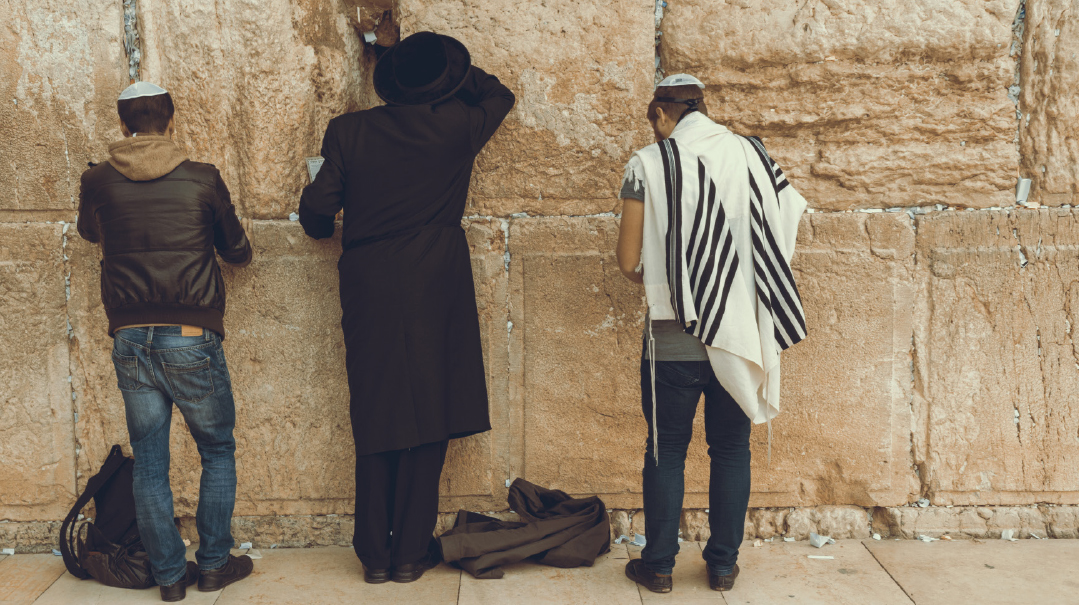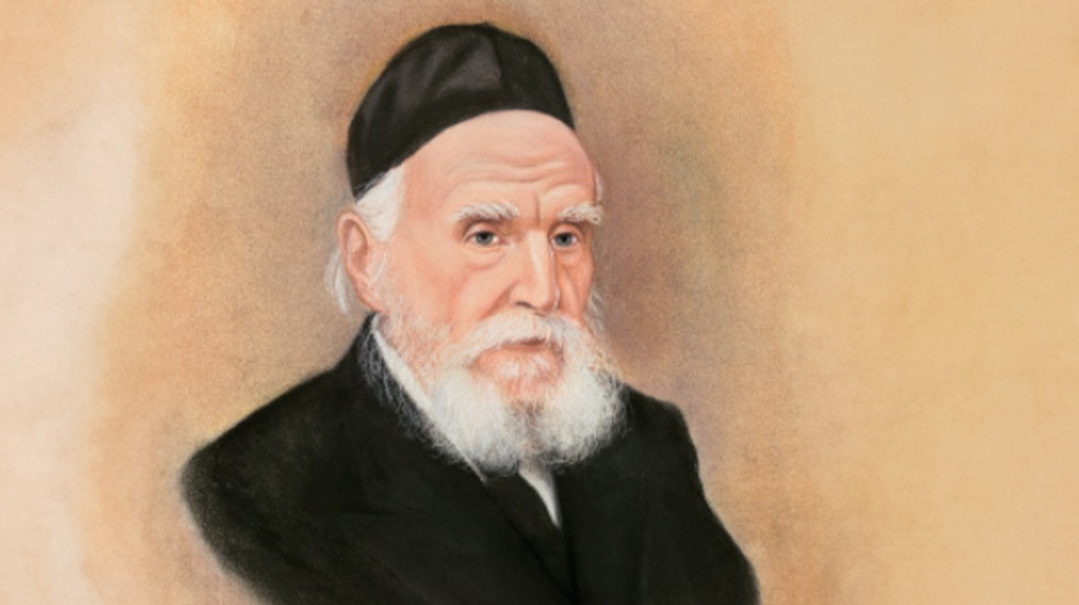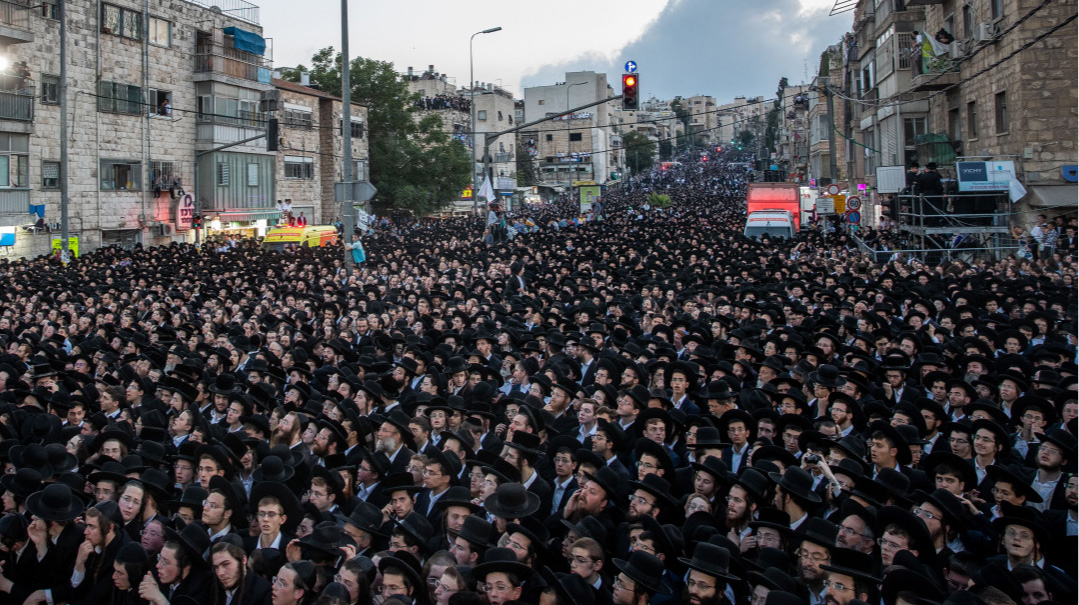The Gap Is Wide — but We Can Bridge It

While we may instinctively classify observance of Yom Hazikaron as a nationalistic or Zionist experience, perhaps this year, when so many are grieving their raw and fresh losses, we can pull it out of that realm and place it where it now belongs: as an opportunity for pure and unadulterated empathy, nesius b’ol im chaveiro

Photo: FLASH90
This article was written with the sincere tefillah to HaKadosh Baruch Hu that its words generate unity and healing and not chas v’shalom argument and division. Dear readers, there is little in our fractured world that is “shaveh l’chol nefesh” and works for everyone. If you find these words worthy, please act upon them yourselves, and do not use them to question, challenge, or rebuke others.
“Sharing the burden.” Those words in the Hebrew vernacular — shivayon banetel — serve as shorthand for the demand of some to end army exemptions for yeshivah students. Ironically, that same phrase in the Lashon Hakodesh of Chazal — nosei b’ol im chaveiro — describes a foundational value of the yeshivah world and occupies a significant place in the writings of generations of its baalei mussar, from the Alter of Kelm to Rav Mattisyahu Salomon, emphasizing how the capacity to picture and to empathize with the burdens of others is fundamental to the development of the ben Torah and critical to societal coexistence. We must therefore ensure that a rejection of the implications of shivayon banetel comes along with a full embrace of nesius b’ol. How can we achieve that?
Since Simchas Torah, our people have been actively engaged in an existential battle against an enemy intent on destroying us. Hundreds of Israel’s precious soldiers have given their lives, and thousands have been wounded in defense of our land and its inhabitants, changing the lives of their families forever. Thousands of Israelis have been living for months with the unimaginable tension of having a child, spouse, parent, or sibling on the front lines as they await the dreaded knock on the door.
There is an unbridgeable gap between them and those of us — the vast majority of both the Israeli chareidi population and of American Jewry — who have not shared that experience and who cannot possibly imagine it. A dear friend lost his son, a reservist who was exempt from service as a father of six but nevertheless went voluntarily to the front lines. Thinking of his child who literally gave his life for the Jewish People and of the wife and children who proudly encouraged him and sent him into battle, my friend cannot bear hearing others bandy about the term “mesirus nefesh” to describe things like traveling three hours to a wedding or staying after an event to clean up. Those of us far from the front lines really have no clue what true mesirus nefesh is.
We need to recognize that this is currently the deepest division in Klal Yisrael, the disparity in lived experience between those bearing the direct burden of the war and those removed from it. This gap is far more substantive than which side we take in the philosophical and policy debates over the pros and cons of granting draft exemptions to yeshivah bochurim. And it is a space that needs to be filled not by discussions in which we argue our own side, but by pure and unadulterated empathy, nesius b’ol im chaveiro, trying our hardest to understand the other’s experience.
We may love to argue endlessly about the ethics of who should bear and share the burden (and privilege) of army service, how one can maintain frum life in the army environment, whether the army really wants and needs chareidim, the protective value of limud Torah, and the difference between exclusive dedication to Torah study and the blending of study and service. These are perennially recurring questions that, when debated, tend to exacerbate hurt and emotional distance, as each side raises its voice to highlight the power of its arguments and contributions and the weaknesses of the other.
The gap in experience, on the other hand, is addressed by listening and trying our best to understand the sacrifices and challenges of the other, and the more we engage in that, the closer we become to each other, and the more we move toward healing our divisions and bringing both comfort and strength to those who have given Klal Yisrael so much.
This approach was used by Rav Zvi Pesach Frank of Yerushalayim in a letter he wrote on the 24th of Nissan, 1948, to the chiefs of staff of the pre-state Jewish defense forces, days before the Declaration and War of Independence. The letter’s purpose was to request an exemption for yeshivah bochurim and makes the familiar argument that they should be allowed and encouraged to continue to study Torah as a critical spiritual element of the defense of the country. But Rav Zvi Pesach began the letter not by arguing the merits of his side, of the contribution of Torah, but with an expression of profound appreciation, empathy, and admiration for the dedication and sacrifices of those fighting in the trenches:
“With a recognition of gratitude and wishes of blessing to all who rise up with dedication and self-sacrifice and stand firm as a rock opposite the enemies of the Jewish People… these remnants of Israel have adopted a spirit of zeal and bravery, confronting the enemies and fighting them back. Every heart grieves and is torn and impassioned over their innocent spilled blood that flows through our Land.”
A similar sentiment was expressed by Rav Chaim Shmuelevitz to the talmidim of Yeshivas Mir on Erev Succos 1973, as the Yom Kippur War raged: “Chazal teach us that those who were killed at Lod will be in a class of their own in the World to Come because they sacrificed their lives for the safety of the Jewish People (Bava Basra 10b). I say the same regarding those who are giving their lives to save us: No one in the world can come close to their greatness. Our obligation to daven for them is unlimited.”
As the philosophical and policy debates over who should bear and share the burden of army service continue to rage and divide Klal Yisrael, we must figure out how to approach the gap in lived experience in the spirit of the words of Rav Zvi Pesach and Rav Chaim. While there is little in our fractured world that works for everyone, here is an idea that many can embrace.
We are approaching a day when thousands will grieve for those whose spilled blood is flowing through our Land. Every year, the 4th or 5th of Iyar is observed as Israel’s Memorial Day, Yom Hazikaron, dedicated to remembering today’s holy harugei Lod, the soldiers who gave their lives for Eretz Yisrael. It is a day of intense mourning for the families and communities of those who serve, but it has not been seriously observed beyond those circles, either in Israel or the United States.
And while we may instinctively classify observance of Yom Hazikaron as a nationalistic or Zionist experience and therefore put it into the category of perennially recurring hashkafic debates that divide us, perhaps this year, when so many are grieving their raw and fresh losses, we can pull it out of that realm and place it where it now belongs: as an opportunity for pure and unadulterated empathy, nesius b’ol im chaveiro, as we try our hardest to understand the experience of those who have sacrificed their lives for us, for Klal Yisrael, whom no one in the world can approach in their greatness.
So many soldiers have given their lives this year that we struggle to remember that each of these kedoshim represents a world. They all deserve to be remembered individually by having their story told and by having Torah learned and tefillos said in their memory. Each and every one of their families deserves to know that their sacrifice is recognized as having been on behalf of all of Klal Yisrael.
Let us — the community that does not serve in the army — bridge the gap of experience and join the families of the fallen in recalling and appreciating their profound sacrifice. We at the OU plan to ensure that during this season there will be a broad and deep expression of profound ahavas Yisrael and nesius b’ol im chaveiro that crosses the ocean and the gap of experience, remembering each soldier uniquely in one of our shuls or batei medrash; and bringing uplift to their neshamos, strength and comfort to their families, and hopefully bringing the Geulah a bit closer.
Please include your shul or beis medrash in this opportunity by undertaking to memorialize one of the kedoshim. Please reach out to lanetzach@ou.org or register at https://www.ou.org/lanetzach/ to participate in this effort.—
Rabbi Moshe Hauer is the executive vice president of the Orthodox Union.
(Originally featured in Mishpacha, Issue 1010)
Oops! We could not locate your form.






